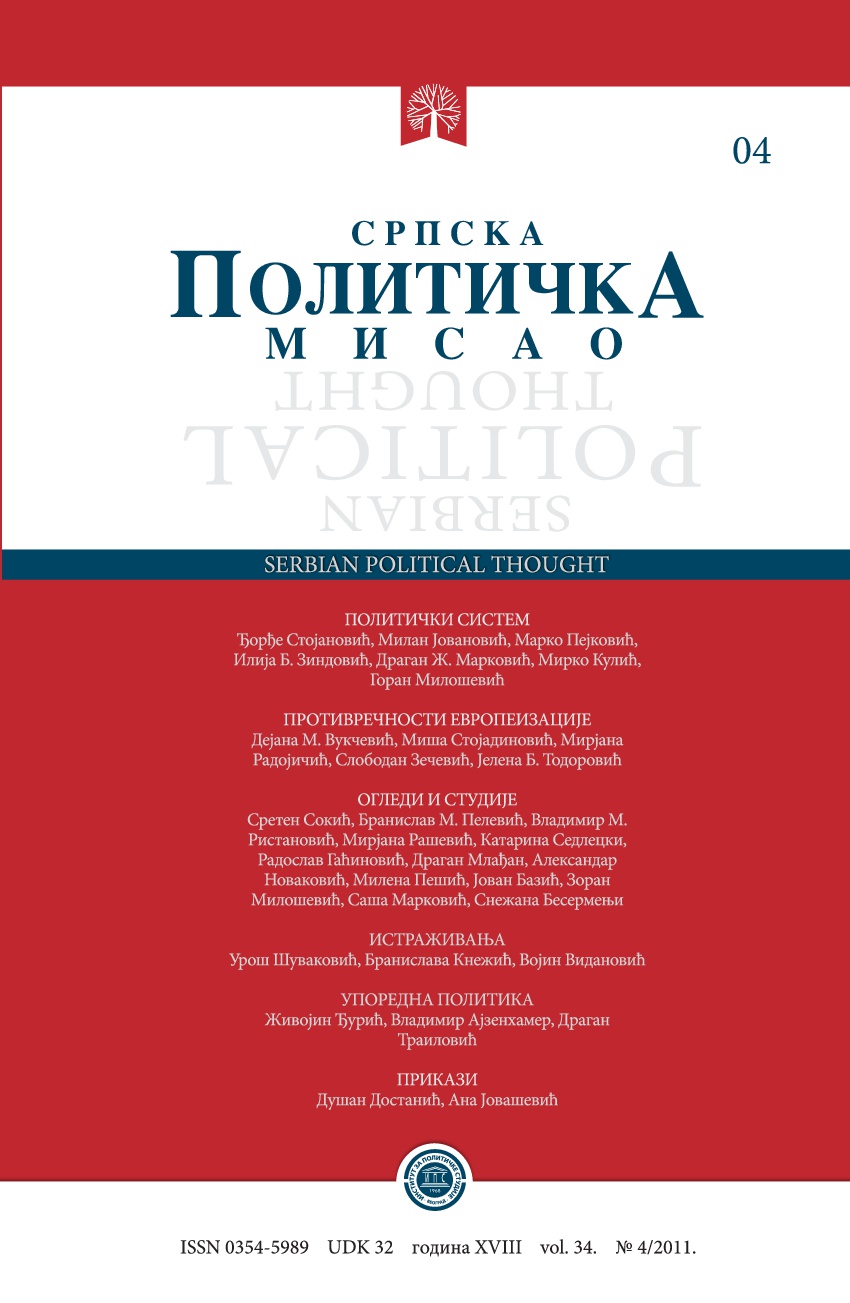Национални идентитет у процесу политичке социјализације
National Identity in the Process of Political Socialization
Author(s): Jovan R. BazićSubject(s): Education, Customs / Folklore, Media studies, Social Norms / Social Control, Politics and Identity, Identity of Collectives
Published by: Институт за политичке студије
Keywords: national identity; political socialization; socialization agent; political culture;
Summary/Abstract: This paper analyzes national identity as an expression of individual and collective self-determination in the process of political socialization. In that process children and other society members learning about their own nation, customs, values; that helps them to become capable for independent living and to adapt to new circumstances and other people; and to adopt political patterns and shape their own patterns and social behavior in the social interaction. In these contexts social interaction helps people to learn and develop patterns of political culture, solidarity and consciousness of belonging to a nation, as well as positive attitude about it. National identity is present since the earliest stages of political socialization in the complex network of interaction between the individual and society firstly by learning their language and adopting the basic elements of their culture, and then by adopting symbolic and physical factors of their own nation. The most important agents of formation of national identity are family, school, political organizations, religious institutions, mass communications, instruments of symbolic policy components etc. They are active through the processes of political socialization and formation of national identity in which people learning their roles and national defined expectations.
Journal: Српска политичка мисао
- Issue Year: 2011
- Issue No: 4
- Page Range: 335-354
- Page Count: 20
- Language: Serbian

